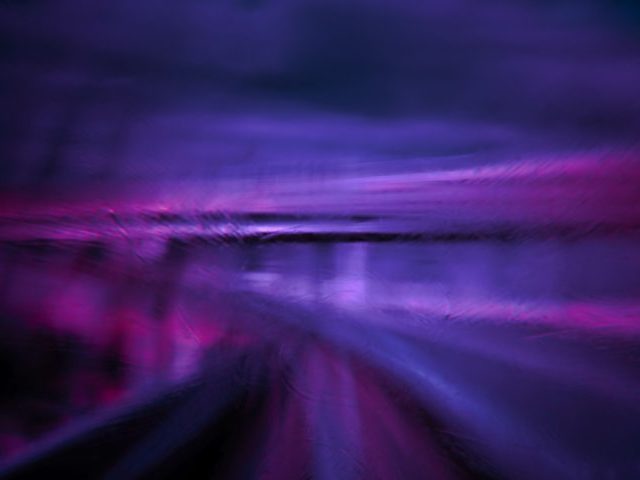In her next blog instalment, Elizabeth Lovatt talks to Nise McCulloch about poetry and its relationship with the MIR16 theme of climate
Since my last blog post the Editors at MIR 16, myself included, have been busy working with our selection of authors to edit and finalise their work ready to be copy-edited. I thought this would be a good time to take a break from our behind-the-scenes blogs and, as we did with creative non-fiction, take a look at the other new form in this year’s issue: poetry! I interviewed one of our Poetry Editors, Nise McCulloch, to discuss all things poetry related.
Elizabeth: What is it about poetry that appeals to you?
Nise: That is a far-reaching question with many answers! Succinctly put, poetry, for me, is the discourse and negotiation between the internal and external. It is a personal experience of authenticity that attempts to hold a place of understanding in a wider world. Artistically, it is the challenge to convey, evoke and isolate feelings in an aesthetic way. Though I do write contemporary and prose poetry, I prefer to experiment in creating visual and conceptual pieces – so I guess I also embrace and engage with the malleability of poetic form.
What do you think poetry can “do” that creative non-fiction/fiction can’t?
I think it is fantastic that many writing forms now overlap. You can find prose written as poetry and vice versa. Both poetry and prose demand effort from their creators and neither is inferior to the other. They are adept at preserving moments and agile in the communication of ideas. Prose tends to be language in its original and natural form; it is freer in both its reading and writing. Poetry is the aligning of splinters of language – arranging and contracting until the core can radiate what the poet is trying to say. It is a compressed form of expression that sits between music and prose. It is artistic patterning, through sound or word connection, and is designed to be read aloud; a soundscape with words specifically chosen for its silhouette, musicality and substance. It has more confinements than prose with all ideas contained in a limited number of words that need to be delivered in the narrowest of time. Once read, it is easy to neglect prose – you may remember a specific book that struck a chord at the time of reading, you may remember the story arc and the odd line that resonated, but it is difficult to recall the work as a whole. Poetry can be more memorable, it creates its own truth, and once digested tends to linger.
Thinking about our topic of climate how can poetry, in particular, speak to this theme?
The theme of climate can be interpreted in a number of ways: environmental, geographical, economical, political and social to name just a few. All of these provoke debate Some time ago I remember reading that ‘all art is political otherwise it is just decoration’ and this is also true for poetry. Writers and poets have always composed when the world is in flux. We try to make sense of things, to express outrage, injustice or fear. Poetry, like all writing forms, can aim to explicitly address climate issues but the words need to be curious beyond the rhetoric and mimetic. They need to be crafted into something that rises above the polemic and frustration. Yet it is easy to fall into the trap of grasping a political issue at its broadest point with intent to rage (trust me, I’ve been there). This inevitably leads to writing abstraction. In order to ground the issues we need to narrow their sphere by looking at specific details within the circles of the larger picture. Incongruously, it is the details that, when aesthetically arranged, manifest tension, authority, angst and movement. They naturally expand points of contention and poetry then becomes an activistic mouthpiece to highlight a message. In this way, poetry can speak to its audience and effect change in climate emergency – whatever the interpretation of climate may be.
What excites you for the future of poetry?
I love the elasticity. Poetry has crossed and blurred literary and artistic boundaries making it more accessible. The poetry/spoken word scene has burst wide open in recent years and is not letting up. Specialist publishing houses, poetry imprints, online/digital zines and poetry groups also seem to be at an all-time high – which is great. The haughtiness of attitude that poetry is an exclusive art-form has been chipped away. Today it is raw and edgy; it invites inclusivity. I’m excited to see and be part of what happens next; how it will flex to lend itself to ever-changing cultural and artistic landscapes.
And finally, what’s one piece of advice you’d give for writing poetry?
The advice given to me was to read. Read lots and keep reading. This is imperative, invaluable even, in developing and producing your own writing. Reading the work of your contemporaries, as well as established poets and the classicists, will help you find your own voice and stance within the current poetry scene. But also have fun. Play, experiment – poetry doesn’t have to be highbrow, nor be about rhyme or traditional structures and features (though I have to say that poetic devices and techniques do help enormously). Sorry, that’s two pieces of advice!
Nise McCulloch is a writer, poet and artist. She writes experimental fiction and is currently working on her debut novel. She creates visual and conceptual poetry, for both the page and as installation, and was awarded the Michael Donaghy Poetry Prize 2018. Her work has been showcased in exhibitions and online publishing, as well as being performed across London & SE venues.
Nise hosts the literary and spoken word events Lexis and Writers Room. She is one half of the art collaboration Liminal, has interviewed authors on behalf of TSS Publishing, and is a member of the editorial team for Mechanics Institute Review #16.
As an educator of literature, creative writing, heritage and arts based learning, Nise is an advocate of culture for all. She has directed and programmed literary festivals and instigated and curated community heritage arts projects. She is currently studying towards an MFA in Creative Writing. Find her at www.nisemcculloch.com or on social media @niseword
Elizabeth Lovatt is a writer of short stories and creative non-fiction living in London. Her work has featured in Popshot Magazine, Firewords and 404 Ink, among others. She is interested in the intersection between literary fiction, queer identity, technology and anything else that falls between the cracks. She runs the tiny narrative — a bi-monthly newsletter of personal despatches for narrative obsessives and is currently studying for an MA in Creative and Critical Writing at Birkbeck.
Follow her on Twitter and elsewhere on the internet @elizabethlovatt and www.elizabethlovatt.com/


